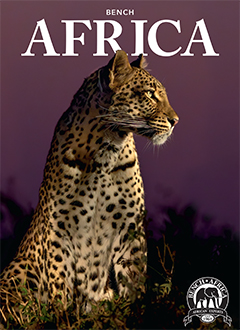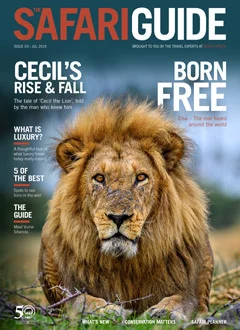Trip Planner
Rwanda
-
Country Overview
Country Overview
All the facts you need to know about the country itself.
Full Country Name Republic of Rwanda
Area 26,338 sq km
Population 11.751 million (UN 2015)
Capital and largest City Kigali
Borders Burundi, Democratic Republic of Congo, DRC (formally Zaire), Tanzania and Uganda
Religion Roman Catholic, Protestant, Adventist, Muslim and indigenous beliefs
Time Zone Standard time is two hours in advance of Greenwich Mean Time
Languages Kinyarwanda (official) universal Bantu vernacular, French (official), English (official), Kiswahili (Swahili) used in commercial centres
Country Dialling Code +250Rwanda is popularly known as ‘the land of a thousand hills’. The landscapes in this green country are truly incredible. Fortunate people who have had the chance to visit Rwanda have remarked about the physical beauty of the country. From East to West and North to South, you get to discover one of God’s best creations.
Rwanda boasts a wide variety of wildlife. The Volcanoes National Park, in northern Rwanda is home to the world’s largest number of endangered mountain gorillas. Numbering in the hundreds, the gorillas live in a protected area, free from poachers. The Akagera National Park in eastern Rwanda is crowded with wildlife both large and small. Lake Kivu also offers beautiful beaches, jutting peninsulas and an archipelago of beautiful islands.
Rwanda, in a nutshell, is a nature lover’s paradise. It is also one of the friendliest countries. A warm welcome is complemented by comfortable facilities, fine food and a rich cultural heritage.
-
When to Travel
When to Travel
There is no right time to travel to Rwanda, just the right time for you!
Expert Tips
- For those that are looking to add on a gorilla trek to their safari elsewhere in Africa Rwanda is the best option because it only takes 2 hours to get to the National Park from Kigali so it makes it an easy stop over.
- There are only 3 options for accommodation right beside Volcanoes National Park so we advise booking well in advance, to avoid disappointment.
When Should I travel to Rwanda?
- A combination of tropical location and high altitude ensures that most of Rwanda has a temperate year-round climate.
- Temperatures rarely stray above 30 degrees Celsius by day or below 15 degrees Celsius at night throughout the year.
- The exceptions are the colder upper inclines of the Virunga Mountains and the hot low lying area of Akagera National Park.
- It makes little difference when you decide to travel to Rwanda, as the seasonal difference is minimal.
- As Rwanda has a rainforest climate whatever time of the year you decide to travel you are likely to encounter a significant amount of rain, although this tends to arrive in short bursts, in the late afternoon. The hot tropical sun also quickly dries up the rain.
-
Visa Information
Visa Information
Here is the “need to know” information about visas for Rwanda.
Do I need a Visa to Travel to Rwanda?
At the time of writing, Australian Passport holders to get visa on arrival without prior application.
WHAT IS THE COST OF A Rwandan VISA?
- Single Entry Visa (30 days): Visa fees are waived for Australian passport holders.
Don't Forget...
- The visa is applied for on arrival in Kigali.
- Yellow Fever: A Yellow Fever vaccination is required. All travellers must carry proof that the Yellow Fever vaccine has been administered at least 10 days prior to travel.
- Visitors must also be in possession of onward travel documents and have sufficient funds for the duration of their stay.
- It is important to have two blank pages side by side in your passport for the entry and exit stamps to be issued. If there is insufficient space, entry into the country may be denied.
- Please double check this with Bench Africa or your travel agent as this may change at any time.
-
Money Matters
Money Matters
What you need to know about your finances for your holiday in Rwanda.
Currency
The unit of currency is the Rwanda Franc (RWF). However when changing money, US Dollars cash is the preferred currency.
YOU SHOULD KNOW...
- Any dollar bills taken must not be tattered or torn, and should not have been issued prior to 2001.
- It is difficult to change money outside Kigali.
- Credit cards are not widely accepted and not all lodges will take them.
- Small local purchases such as souvenirs and drinks will definitely have to be paid for in local currency.
-
Electricity
Electricity
Although electricity in Africa is a lot more reliable than it used to be, here’s what you need to be aware of.
Voltage & Frequency
The general voltage in Rwanda is 240 and the frequency is 50 Hz.
Top Tips
- Generally a 2-pin European style plug is used. Electricity in most camps is provided by generators.
- Batteries may be recharged in the camp during the day but it is wise to double check with the camp manager.
- As the sockets can vary a ‘Travellers Adaptor Set’ is recommended.
- Voltage sometimes fluctuates and whilst power cuts are rare, they are not unknown. It is useful to carry a torch.
- Recommended Reading
-
Tipping
Tipping
Tipping is a delicate and sensitive issue and many people ask us for tipping guidelines, here is all the information you should require.
Tipping Guidelines
Tipping is usually considered customary in Africa although not as widespread as the United States or Europe. It is always at your discretion. If you feel that someone has gone the extra mile to make your stay more enjoyable, a tip would be considered a nice way of saying thank you.
To help you budget for your trip, the following is given as a guideline only (shown in US Dollars):
Driver (per person per full day): $5.00
Guide (per person per full day): $10.00
Main Gorilla Guide (per person): $25.00
Gorilla Porter (per person): $20.00
Hotel Porter (per bag): $1.00
Restaurant (per person per meal): $1.00
A la Carte dining (% of bill): 10% -
Useful Numbers
Useful Numbers
Here are some numbers you might need.
Consulate General of Rwanda
Collins Street East Victoria 8003, Australia
Tel: +61 3 9664 1964 Web: www.rwandacg.org.auAustralian High Commission in Kenya
Riverside Drive, (400 metres off Chiromo Road) Nairobi, Kenya
Tel: +254 20 4277 100 or +254 20 4277 160 Web: www.kenya.highcommission.gov.auAustralia does not have an Embassy or Consulate in Rwanda so we suggest you contact the Australian High Commission in Kenya.
- Local Laws
-
Gorilla Trekking
Gorilla Trekking
Here is some information that you need if you’re thinking about doing a trek to see the gorillas.
Gorilla permits
- Each gorilla permit costs US$1,500 in Rwanda
- There are a limited number of gorilla permits issued in one day so be sure to book early to avoid disappointment.
General Information
- There are an estimated 12 gorilla families living in Virunga National Park, approximately 400 gorillas in total.
- 7 of these families are the ones that you will see on a trek in Rwanda.
For further information, here is a comprehensive guide to gorilla trekking.
-
What to pack
What to pack
Here we have listed our recommendations of what you should pack for your Africa travels.
General Information
- Formal clothing is generally not needed throughout most of Africa. We recommend that you limit your luggage to the basics. More formal attire is usually only required when staying in the more prestigious city hotel establishments and on luxury rail journeys such as Rovos Rail or the Blue Train, in South Africa.
- On a wildlife safari, casual cotton clothing is the most practical. Calm neutral colours such as tan or khaki are a good idea although a bush outfit is not essential.
- Some form of headgear is recommended, and sunglasses are essential. A warm fleece or jacket is advisable for colder evenings and early mornings. A lightweight raincoat may be useful as some seasonal rains can occur.
- Heavy footwear is not required, but sturdy, comfortable walking shoes or boots are recommended for nature walks, with a change of shoes (such as trainers) for the camp.
- The dress code is informal at all of the camps and it is advisable to bring long sleeved shirts and trousers for the evenings to minimise insect bites.
- Good laundry facilities are readily available at many hotels, game lodges and camps, and often on a complimentary service where the amount of luggage is restricted. However, on a busy itinerary it is advisable to check that your clothes will be ready before your departure.
- It is always a good idea to dress in layers on activities to accommodate the early morning and late afternoon change of temperature. Winter months will definitely require a warm jacket and perhaps a beanie, gloves and a scarf.
- It is worth investing in a pair of gardening gloves for the gorilla trek.
- If your trip contains any light aircraft flights, then you may be subject to some very strict baggage restrictions. You will be limited to a certain weight, often between 15–20 KG. Bags also have to be soft-sided cases so that they can fit in the hold. These restrictions cannot be avoided, as there simply is not the capacity on these small planes so bear this in mind when you are packing for your Africa trip.
Packing Checklist
- Hat for protection from the sun
- Good quality sunglasses preferably polarized
- Binoculars
- Torch
- Camera, charger and adaptor
- If you wear contact lenses, we recommend that you bring along a pair of glasses in case of dust irritation.
- Good walking shoes, trainers as well as sandals
- Socks (long socks, if you are doing a gorilla trek)
- Shorts/skirts
- Tracksuit
- Long trousers/slacks
- T-shirts/long-sleeved cotton shirt for cooler evenings
- Sweater/fleece/raincoat. These may be required for early morning and late afternoon game activities throughout the year.
- Lip balm
- Sports bra – ladies, you may need this for bumpy game drives
- Swimming costume
- Basic medical kit (aspirins, elastoplasts, Imodium, antiseptic cream etc
- Malaria tablets AND anti-histamine cream
- Insect repellent (many lodges do supply sprays)
- Protective suntan lotion particularly for pale and sensitive skins
- Tissues or ‘wet wipes’
-
Travel Advisory
Travel Advisory
Before travelling we recommend visiting the Smart Traveller website for the most up to date travel advice.
Smart Traveller advice on travel to Rwanda from Australia. Here you can find Rwanda’s most up to date COVID-19 health screening requirements for entry, exit and transit, which may include recent COVID-19 test results and/or vaccination requirements.
Subsequently we advise you to subscribe to Smartraveller for updates to stay informed if something changes.
-
COVID-19 Advisory
COVID-19 Advisory
Before booking your travel from Australia we recommend visiting the Smart Traveller website for the most up to date Global Health and Travel Advisory who are planning to travel internationally.
Smart Traveller’s Global Covid-19 Health and Travel Advisory.
Subsequently we advise you to subscribe to Smartraveller for updates to stay informed if something changes.
















